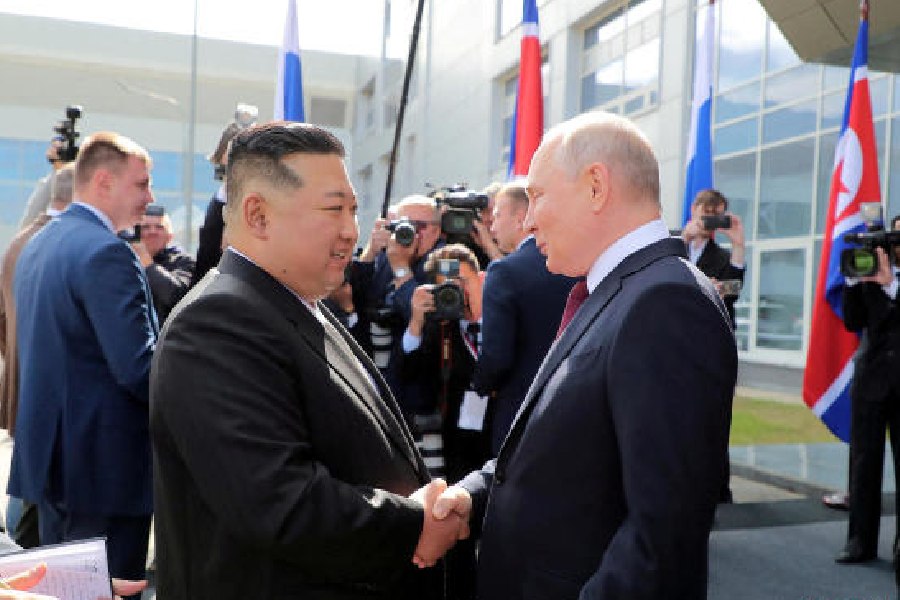To challenge the power of his chief rival, the US, Chinese President Xi Jinping, has linked arms with two anti-western states, declaring a “no limits” partnership with Russia and pledging “unswerving” support for North Korea.
But the spectre of a budding bromance between Russian President Vladimir Putin and North Korean leader Kim Jong-un, after their meeting this week in eastern Russia, may not be as welcome a development for Xi as it might initially seem.
Closer ties between Pyongyang and Moscow could result in both countries being less reliant on Beijing. That might diminish China’s perceived clout in global negotiations over ending Russia’s war in Ukraine and curtailing North Korea’s nuclear programme.
“I doubt Xi is overjoyed to see the Kim-Putin lovefest unfolding across China’s border,” said John Delury, a professor of Chinese studies at Yonsei University in Seoul, South Korea. Kim and Putin, he said, have reasons to seek more autonomy and leverage from China, the “dominant power in the triangle”, by strengthening their bilateral ties.
Russia could conceivably gain more weaponry from North Korea to intensify its war in Ukraine. North Korea could garner aid or technological assistance from Russia and ramp up its nuclear weapons programme. “All this activity would come on Beijing’s doorstep but outside its control or influence,” Delury said.
For China, such cooperation may embolden Russia and North Korea to escalate their provocative actions.
That might be a headache for Beijing, which wants to avoid coming under increased pressure to rein in Pyongyang and Moscow. China has also sought to prevent its neighbours from drawing closer to Washington. Kim’s missile tests have already contributed to the decision last month by South Korea and Japan to sign a trilateral defence agreement with the US.
Perceptions about China’s handling of North Korea and Russia matter because, perhaps more than at any time in its history, China is bidding for a greater share of global leadership. It believes that its economic development over the past four decades gives it the legitimacy to champion an alternative world order.











